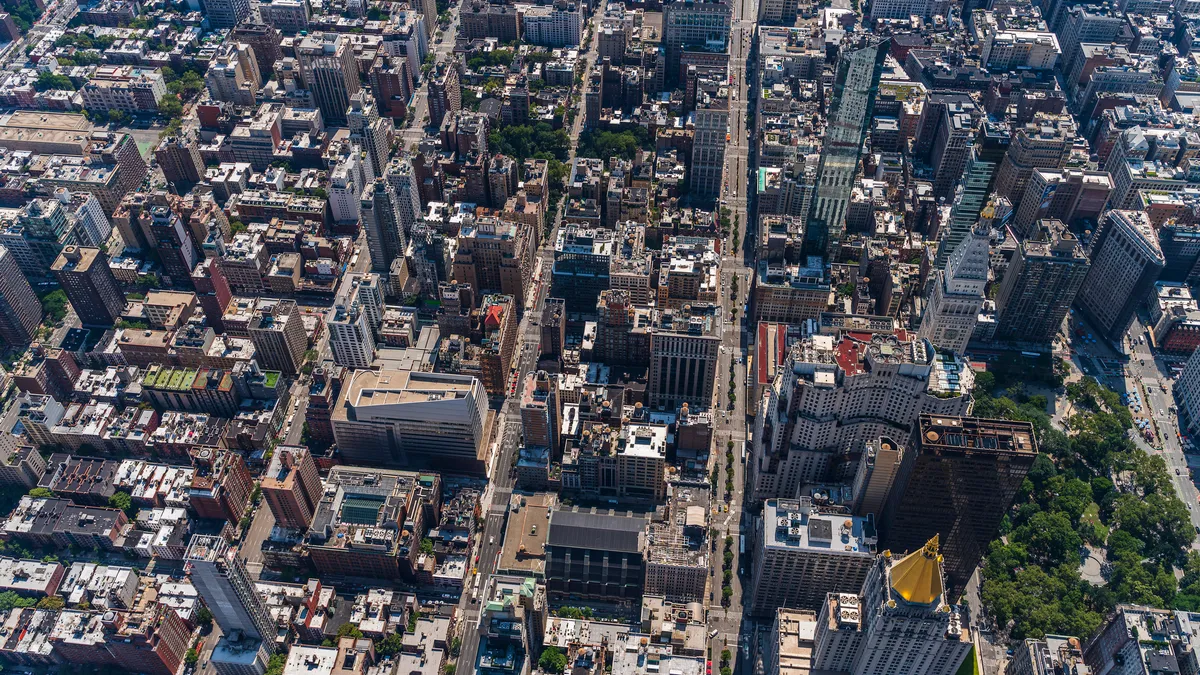Dive Brief:
- New York City plans to create a fund that helps rent-regulated multifamily housing owners and low-income co-ops comply with the city’s building decarbonization law, according to a Sept. 26 news release.
- The GreenHOUSE Fund would receive proceeds from the sale of “offset certificates,” which the city’s building owners can purchase to help them meet the requirements of Local Law 97, a rule mandating that buildings meet increasingly stringent greenhouse gas emissions standards.
- Affordable housing has presented challenges to decarbonization as building performance standards proliferate across the U.S. because building owners may seek to recoup their energy efficiency investments by raising rent, a January report from the American Council for an Energy-Efficient Economy warns.
Dive Insight:
New York City’s Local Law 97 entered its first compliance period at the beginning of this year, meaning nearly 50,000 of its largest buildings must meet new energy efficiency and greenhouse gas emissions standards. Emissions limits are based on a building’s square footage and property type. By 2030, buildings over 25,000 square feet must cut their emissions by 40%; by 2040, they must cut emissions by 80%.
Most building owners will be able to meet the requirements set in this first compliance period, said Rohit Aggarwala, New York City’s chief climate officer and Department of Environmental Protection commissioner, in a statement. However, buildings that have become compliant with the law’s 2024 targets since 2019 are “generally in relatively advantaged communities,” according to a city report on Local Law 97.
Under a rule that NYC Department of Buildings plans to propose, offset certificates will be available for property owners to purchase by May 2025, when the first compliance reporting is due. Certificates will cost $268 per ton of carbon emissions, which is equal to the fine building owners must pay for not meeting the law’s requirements, according to a press release. Offset certificates can only be purchased for 10% of a building's emissions limits, however.
“For those who are just slightly over their limits, the offsets will provide a significant benefit to help them avoid penalties, support carbon reduction in affordable housing, and allow them to continue planning for deeper reductions for 2030 and beyond,” Aggarwala said.
Boston has a similar program to support its building performance standard, several sustainability-focused groups, including the Natural Resources Defense Council and Regional Plan Association, said in a statement. The groups expressed support for the city’s pending rule.
“With the right pricing and guardrails, this mechanism will keep more compliance dollars in New York City, while helping to address the significant challenges of financing decarbonization in the affordable housing sector and creating a framework for additional state and federal support,” the groups said.
In the city’s press release, Mayor Eric Adams also urged the New York City Council to enact a new state-created tax incentive program and allow buildings to use those incentives to cover Local Law 97 compliance costs.












